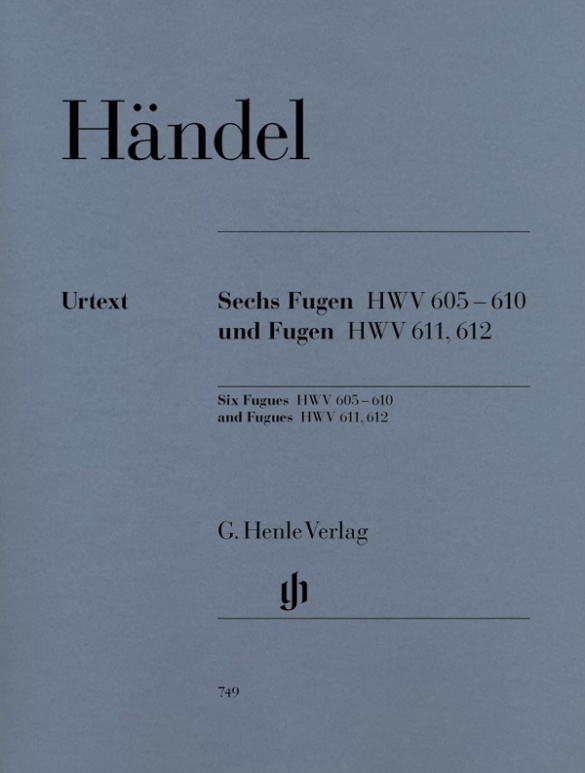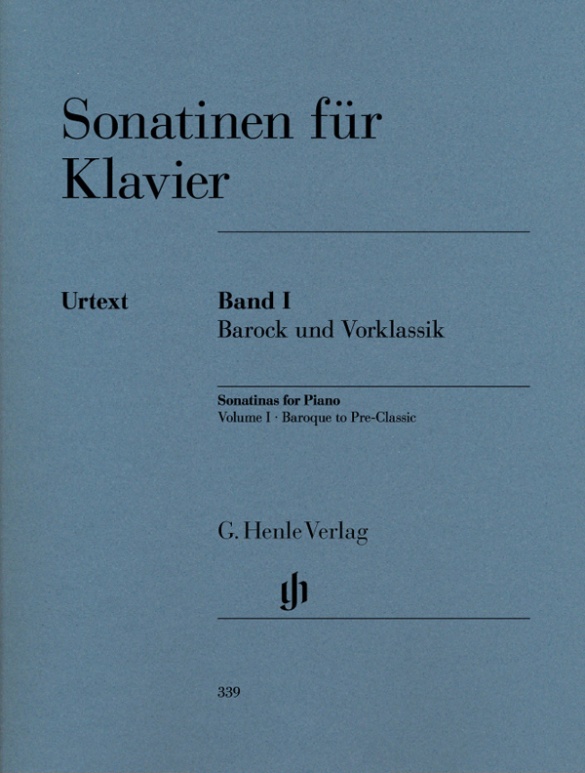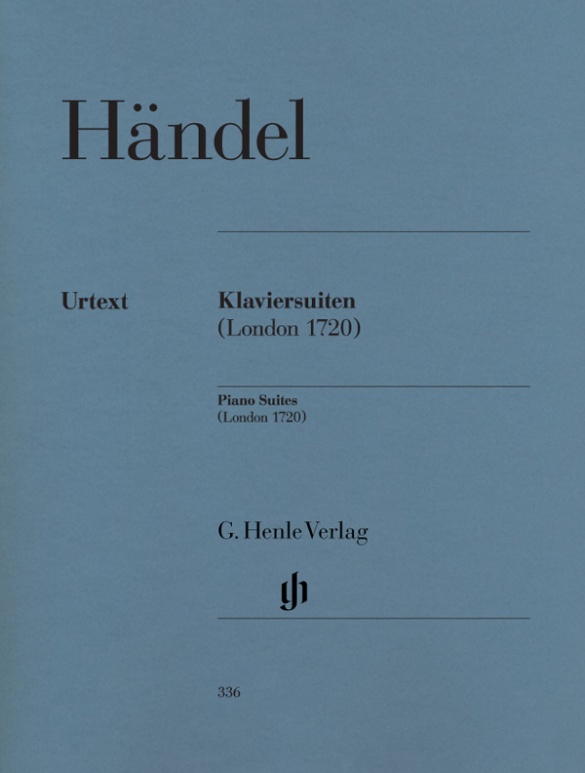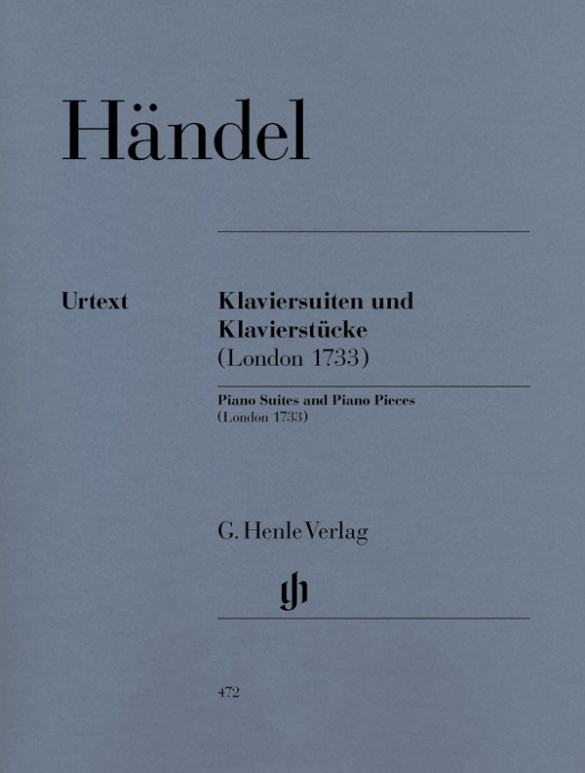

Georg Friedrich Händel
Piano Suites and Piano Pieces (London 1733)
“His things for clavier are incomparable, and almost indispensable to those familiar with the keyboard”, was the judgment of music theorist Johann Anton Scheibe in 1743 when discussing George Frideric Handel’s keyboard music. By making use of the Baroque master’s second printed collection of keyboard suites and single pieces of 1733, the interested pianist can paint a colourful picture. Among pieces entitled “Sonata”, “Suite”, “Prélude” or “Chaconne” within HWV 434–442 is to be found the well-known “Chaconne in G major” with its 21 variations, a work still performed in concert halls today.
The player will also discover here the Aria with five graceful and playful variations that were made famous through Johannes Brahms’ own variation set. Since the collection was published in London and Amsterdam without Handel’s consent, and in a print that included many mistakes, an Urtext edition is vital for creating a reliable text. Klaus Schilde’s restrained fingerings will help overcome many problems, and open up some surprising perspectives.
Content/Details
About the Composer
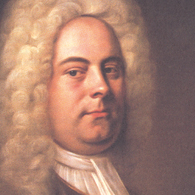
Georg Friedrich Händel
He numbers among the most important composers of Italian operas and is a major proponent of the oratorio; his immense oeuvre also comprises concerti grossi and solo concertos, liturgical music, chamber music, and music for keyboard instruments. He worked in London.
| 1685 | Born in Halle (Saale) on February 23. |
| 1702 | Organist at the Palace Cathedral in Halle. |
| 1703 | Employed as a violinist, later as a harpsichordist, at the Oper am Gänsemarkt in Hamburg; premiere in 1705 of the opera “Der in Krohnen erlangte Glücks-Wechsel, oder: Almira, Königin von Castilien” (“The Change of Fortune Won in Crowns, or: Almira, Queen of Castile”). |
| 1706–10 | Stay in Italy, with opera performances. |
| 1710 | Employed as music director by the Elector of Hanover. The 1711 London premiere of “Rinaldo” is a great success. In 1712, he will travel once more to London, where he will remain for the rest of his life. |
| from 1720 | Important position at the Royal Academy of Music, which he founded in 1717. |
| from 1724 | Successful premieres of “Giulio Cesare in Egitto,” “Tamerlano,” “Rodelinda” in 1725, and “Alessandro” in 1726. |
| 1728 | After the dissolution of the Royal Academy of Music, Handel continues to lead his own company. |
| 1733 | Competition from the Nobility Opera, which is supported by the aristocracy. Premiere of “Orlando.” |
| 1734 | Engagement of a French ballet troupe to outdo the Nobility Opera. Integration of French elements into his own operas. |
| from 1735 | Premiere of “Alcina,” “Giustino” in 1737, “Serse” in 1738 (containing the famous largo “Ombra mai fù”). |
| 1736 | Three “Water Music Suites,” HWV 348–350. |
| 1739 | Twelve “Concerti grossi,” Op. 6, after Corelli’s example. |
| 1741 | Unsuccessful premiere of the melodrama “Deidamia”. From then on, composition of oratorios, including “Messiah” (1741), “Judas Maccabaeus” (1746), and “Jephtha” (1751). |
| 1749 | “Music for the Royal Fireworks,” HWV 351. |
| 1759 | Death in London on April 14. |
About the Authors

Klaus Schilde (Fingering)
Prof. Klaus Schilde, born in 1926, spent his childhood in Dresden. There he was greatly influenced by Walter Engel, who taught him the piano (Kodaly method), composition and violin. From 1946–1948 he studied at the music conservatory in Leipzig with Hugo Steurer. After moving to the west in 1952 he studied with Walter Gieseking and Edwin Fischer, as well as with Marguerite Long, Lucette Descaves and Nadia Boulanger in Paris.
Schilde won numerous prizes. From 1947 onwards he gave concerts as a soloist and chamber musician on almost every single continent with renowned orchestras. He taught at the music conservatories in East Berlin Detmold, West Berlin, Munich, Tokyo (Geidai) and Weimar. From 1988–1991 he was President of the Staatliche Hochschule für Musik und Theater in Munich, where he also taught for decades as a professor. There are numerous radio and television broadcasts with Klaus Schilde as well as CD recordings. Schilde has contributed fingerings to almost 100 Henle Urtext editions.
Prof. Klaus Schilde passed away on 10 December, 2020.
Product Safety Informations (GPSR)

G. Henle Verlag
Here you can find the information about the manufacturer of the product.G. Henle Verlag e.K.
Forstenrieder Allee 122
81476 München
Germany
info@henle.de
www.henle.com
Derr has done a superb job of editing Handel's second set of Suites de Pieces pour le Clavecin... Every possible alternative source has been consulted, variant versions of movements are all printed in the Appendix, and a full critical commentary in both English and Germin is included... If only all editions were like this one!
Harpsichord & fortepianoDie Musik der "Suites de Pieces pour le Clavecin" legt Zeugnis ab von Händels einzigartiger Fähigkeit, ein breites Publikum anzusprechen und gleichzeitig die Kritiker zufriedenzustellen -- was sich auch von der vorliegenden Ausgabe behaupten ließe. Angesichts der überaus schwierigen Quellenlage hat der Herausgeber Ellwood Derr ganze Arbeit geleistet: Seine im Kleinstich gedruckten Ergänzungen und Ausführungsvorschläge sind immer nachvollziehbar und geschmackvoll und der Kritische Bericht ausführlich und informativ; Klaus Schildes zurückhaltender Fingersatz hilft über so manche Klippe hinweg und zeigt überraschende Perspektiven auf. Mehr kann man von einer Urtext-Ausgabe nicht verlangen.
Piano NewsThe current edition from Henle presents the 1733 version as close to the composer's original intentions as possible.
Sheet Musicrecommendations
autogenerated_cross_selling
Further editions of this title
Further editions of this title


